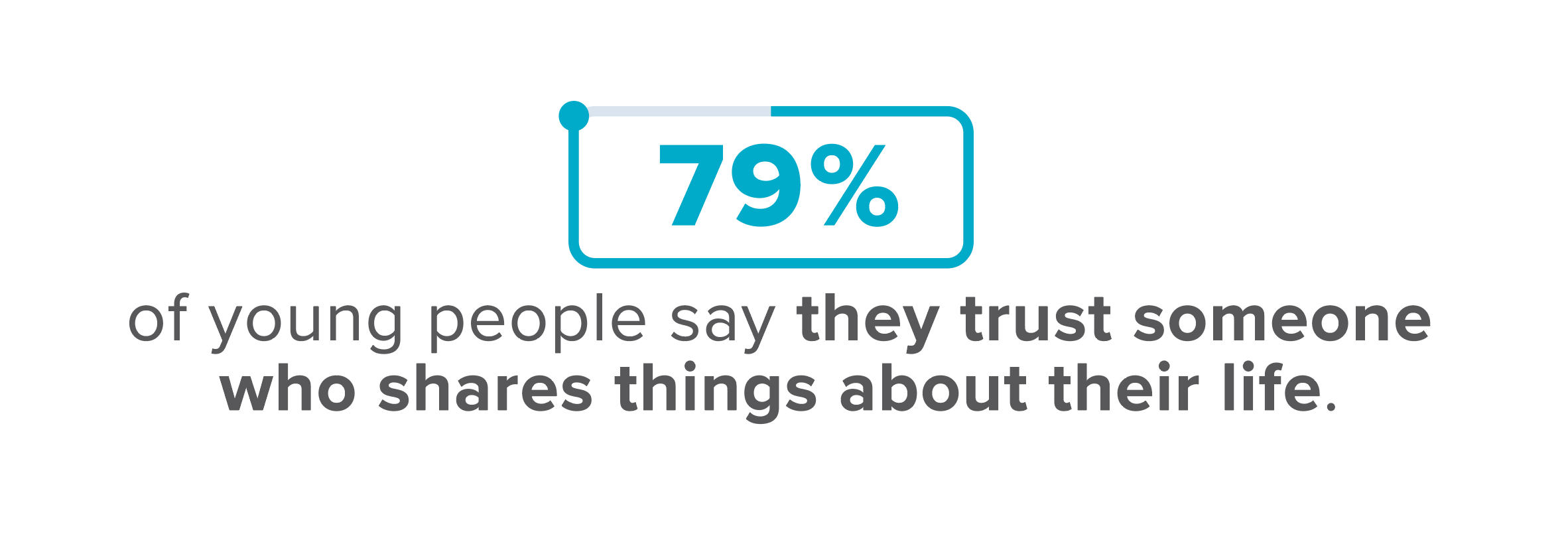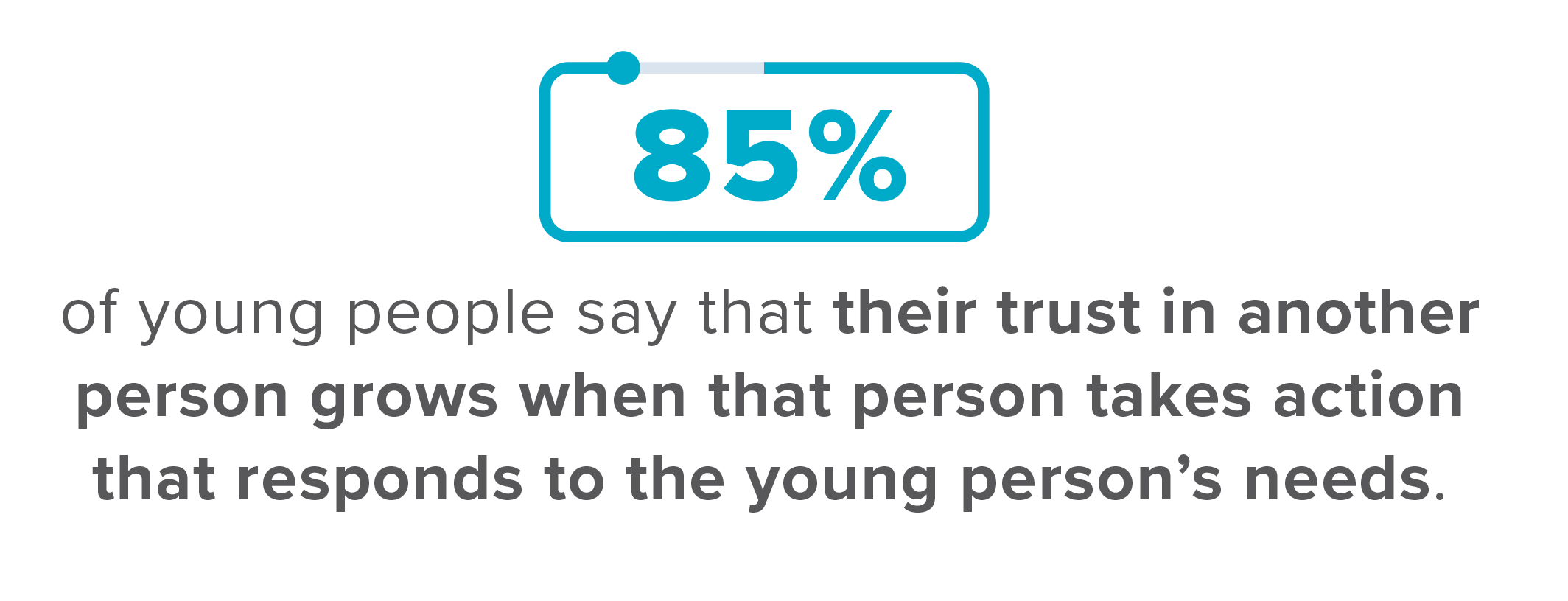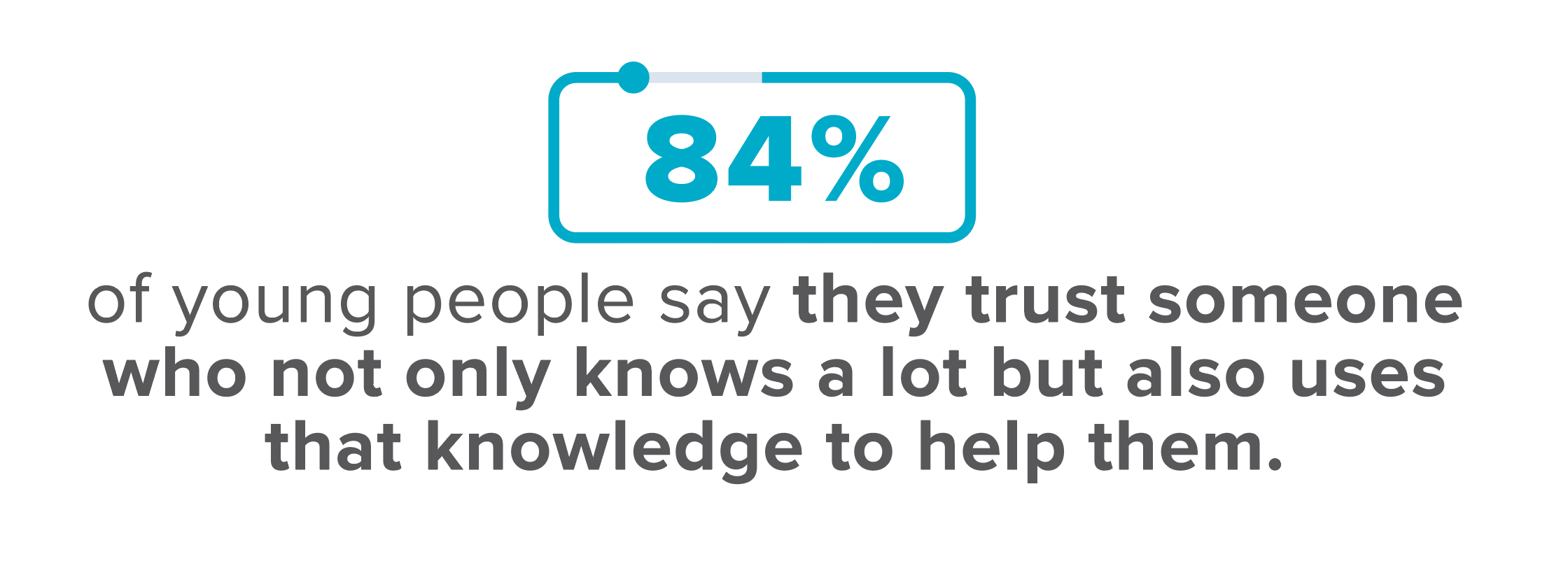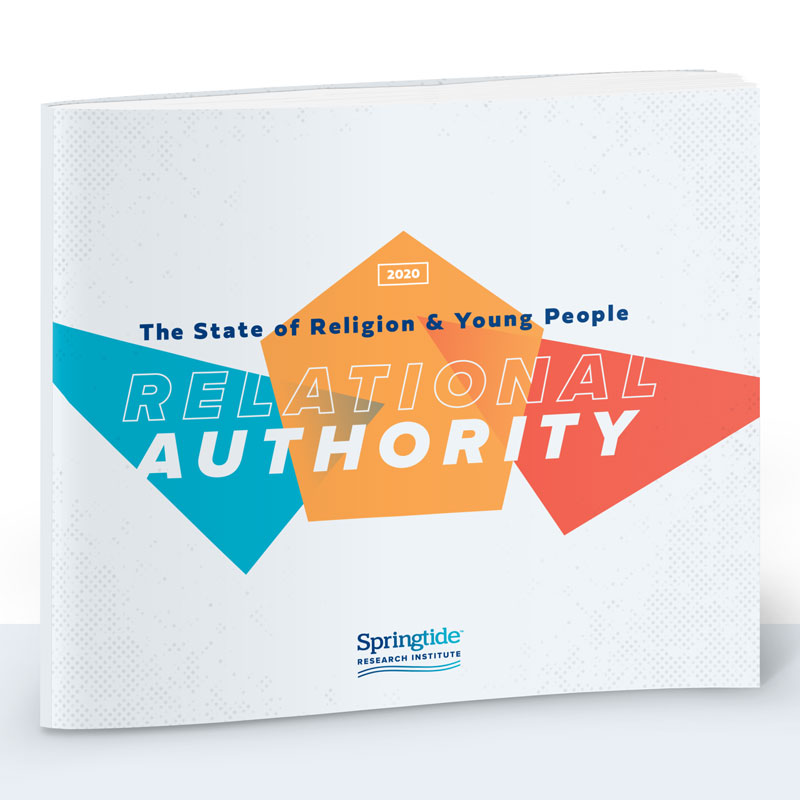
What Is Relational Authority?
For our first State of Religion and Young People report in 2020, we surveyed thousands of young people and interviewed dozens more on how they form their religious and spiritual beliefs and identities and how they undertake practices. As we looked at what the data revealed about young people’s inner and outer lives, something more complex—and universal—emerged. Regardless of whether they were at school or in their faith communities or with their clubs and teams, young people desired to have trusted adults in their lives that would listen to, care for, and guide them. This realization gave birth to a larger framework called Relational Authority.
In a society increasingly filled with impersonal, transactional exchanges, young people have a deep desire for familiar connection. Relational Authority offers a structure for connecting with others in light of changing, social, cultural, and religious dynamics in our world. At its core, this framework is guided by the belief that deep, familiar connection is needed before one can be fully open and receptive to the guidance of others. Therefore, Relational Authority focuses on relationships of care, which are filled with dynamic exchanges of shared experience and sympathetic expertise. Someone practicing relational authority is humble, aware of their own limitations while listening for signs of shared experience over which to connect, bond, build trust, and share wisdom. They don’t assume that their expertise or institutional authority has done the heavy lifting when it comes to building connections.
Relational Authority has five dimensions, ones that our data suggest can create lasting influence in the lives of young people today:
-
Listening is being curious about, engaged in, and remembering what another person said.
-
Transparency is sharing experiences, seeking commonalities, and being open with information that impacts others.
-
Integrity is following up, following through, being accountable, and being authentic.
-
Care is a commitment to the patient and careful work of supporting young people as they navigate questions of identity, community, and meaning.
-
Expertise is specialized wisdom and skill that when combined with listening, transparency, integrity, and care is the foundation for meaningful relationships.
So how can you build Relational Authority? Read on to see how you can engage the five dimensions in your work:
Listening

Young people respond well to those who listen to them. Yet, this type of listening goes beyond an efficient exchange of information, or listening in order to respond. This type of listening includes showing curiosity by using an open posture and asking questions, focusing attention on what they’re saying rather than preparing to respond, and acting on what they said to demonstrate they were heard.
Transparency

Data point (found on page 74) 79% of young people say they trust someone who shares things about their life.
People who practice transparency build bonds of trust by sharing experiences and seeking commonalities. Tell stories about your life and encourage others to share. Find interests, hobbies, or favorites to bond over. On an organizational level, be open with information by letting others see what considerations are made or what steps are taken behind the scenes of different decisions and ideas. This kind of inclusion helps young people feel confident that they are viewed as full participants.
Integrity

Following up and following through are ways to demonstrate a stable and committed presence in the lives of young people. Connect with young people in ways that show you care about their needs, and follow through on any commitments. Don’t overstate commitments that will be hard to keep. If committing to something big, break it down into steps and note deadlines to keep the fulfillment on track. And if you don’t know something or get something wrong, just say it and then articulate ways to move forward.
Care

Caring about young people means wanting and working for their flourishing, which is often slow, patient, and careful work as they navigate questions of identity, community, and meaning. Care is an underlying commitment, so it can take unlimited forms, including remembering birthdays and milestones, advocating for them, speaking up for them, or giving them a platform to use their own voices.
Expertise

Many of the young people we surveyed noted that expertise doesn’t matter if that person doesn’t care. This is sympathetic expertise because it considers the lived experience of another before deciding the best way to communicate expert wisdom. When a person listens and cares first, they can respond to needs they might not have fully understood if they led with advice or expert explanation.
Relational authority is a give-and-take. Experience and expertise are possessed and shared by both adults and young people in varying degrees at various times. By listening to young people, sharing experiences, looking for commonalities, being forthright, and letting these gestures of openness guide when and how to offer advice or wisdom, trusted adults can have a needed and lasting positive impact.

The State of Religion & Young People 2020: Relational Authority
Our data show that checking “affiliated” or “unaffiliated” on a survey doesn’t tell the whole story on young peoples’ religious identities. The largest data set of its kind, The State of Religion & Young People 2020: Relational Authority gives you a framework and insights on how to care for Gen Z today.



